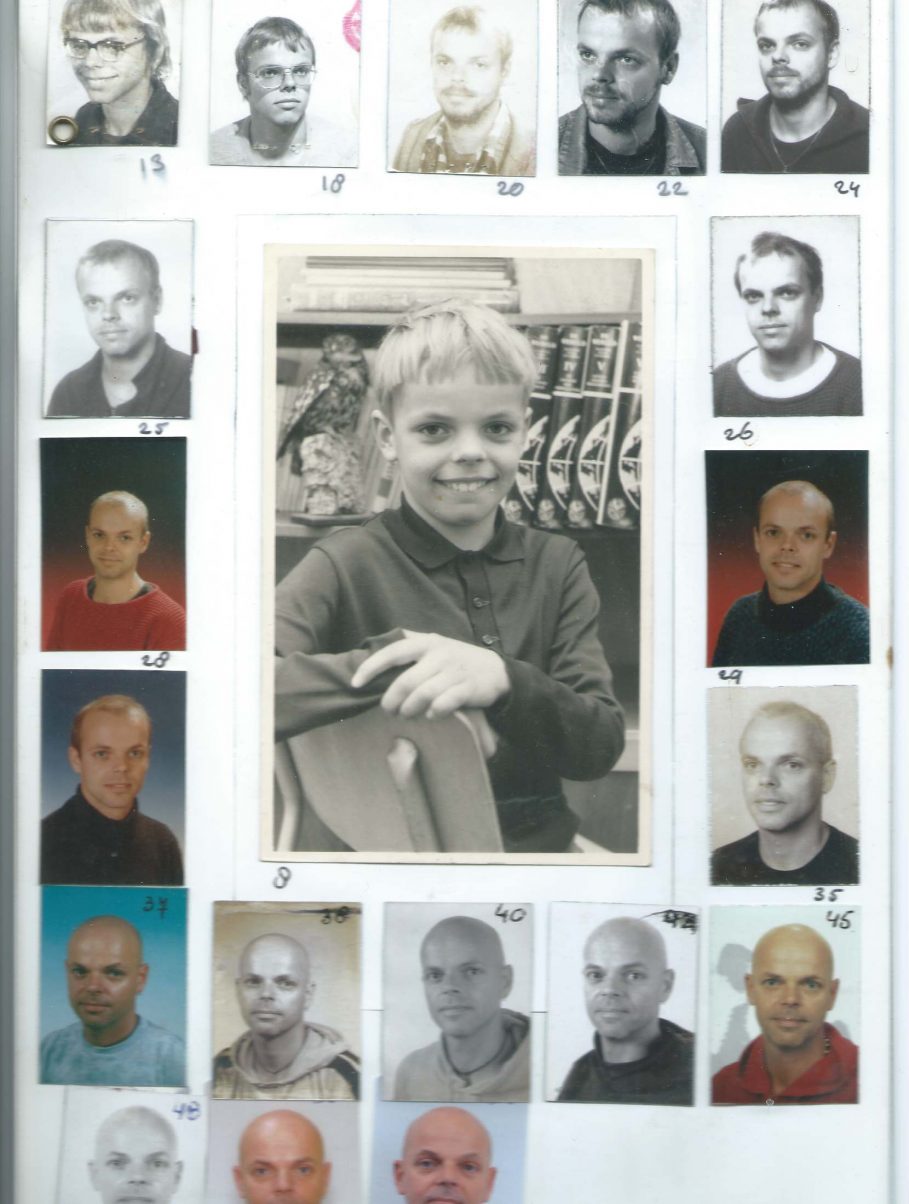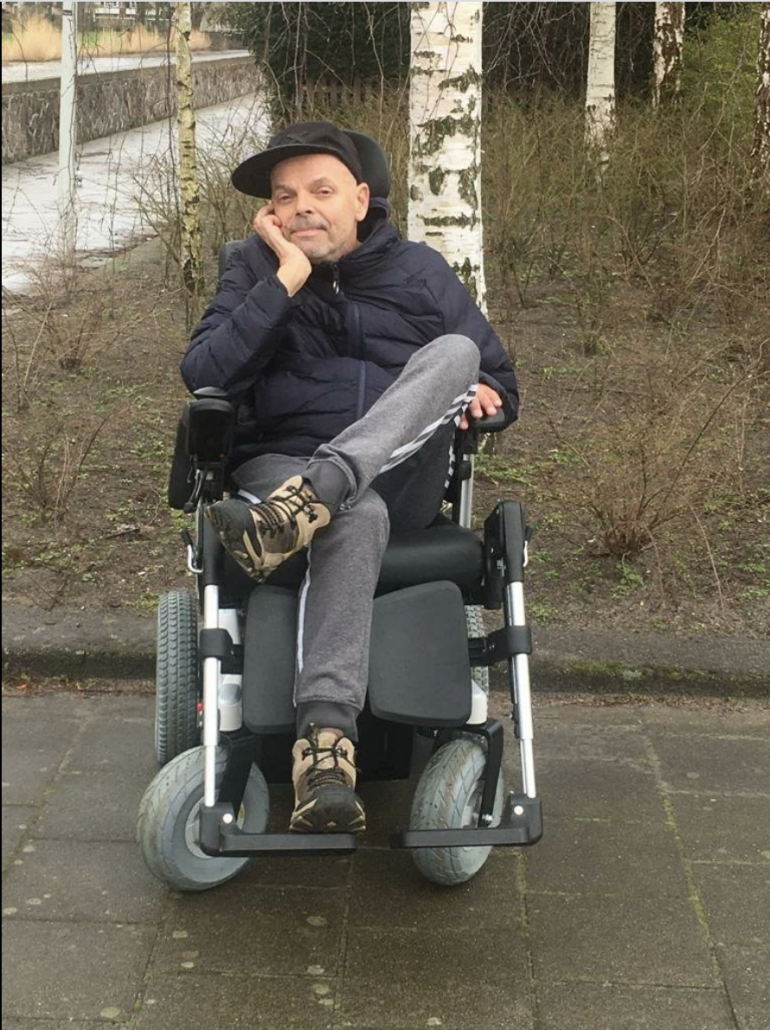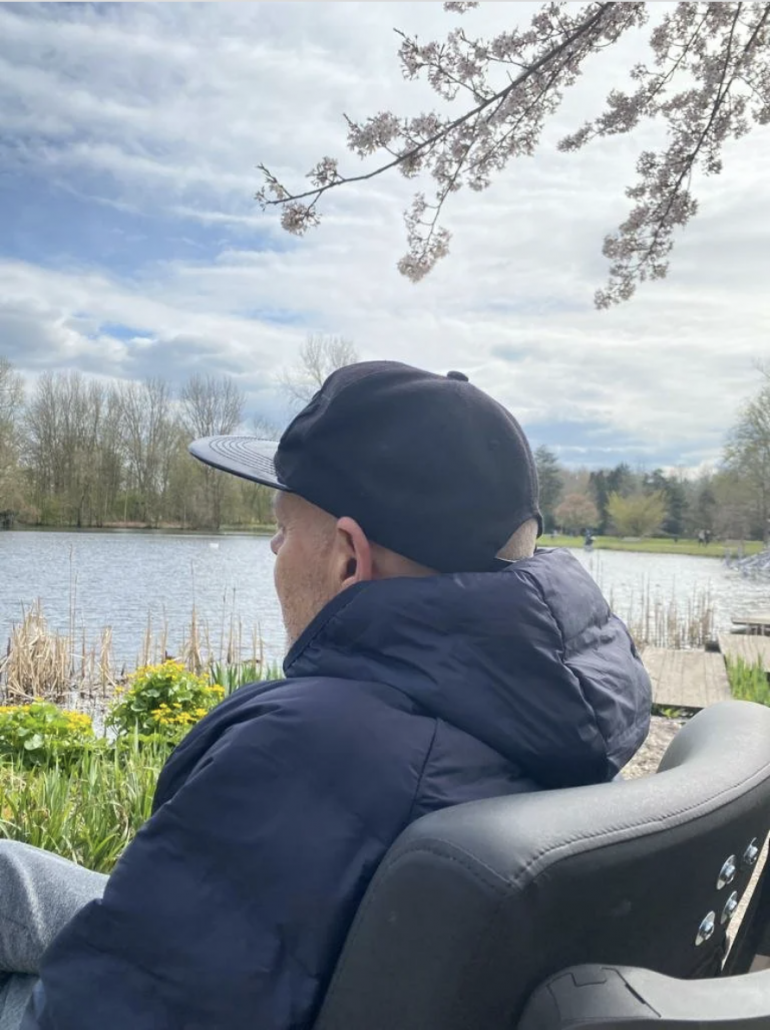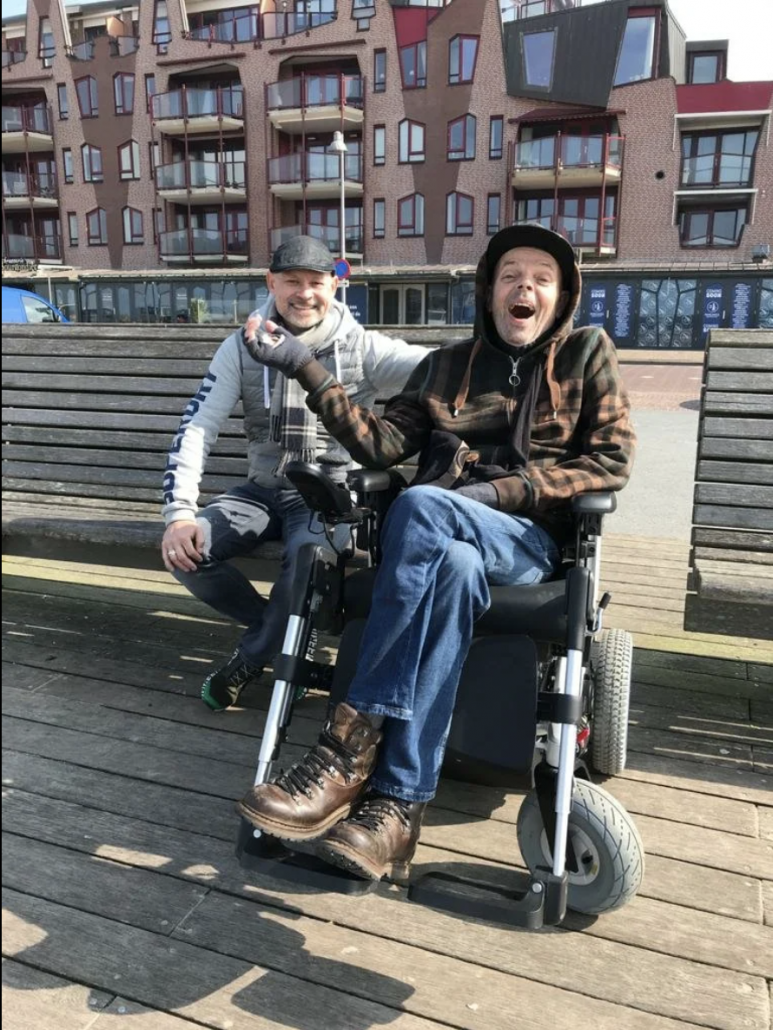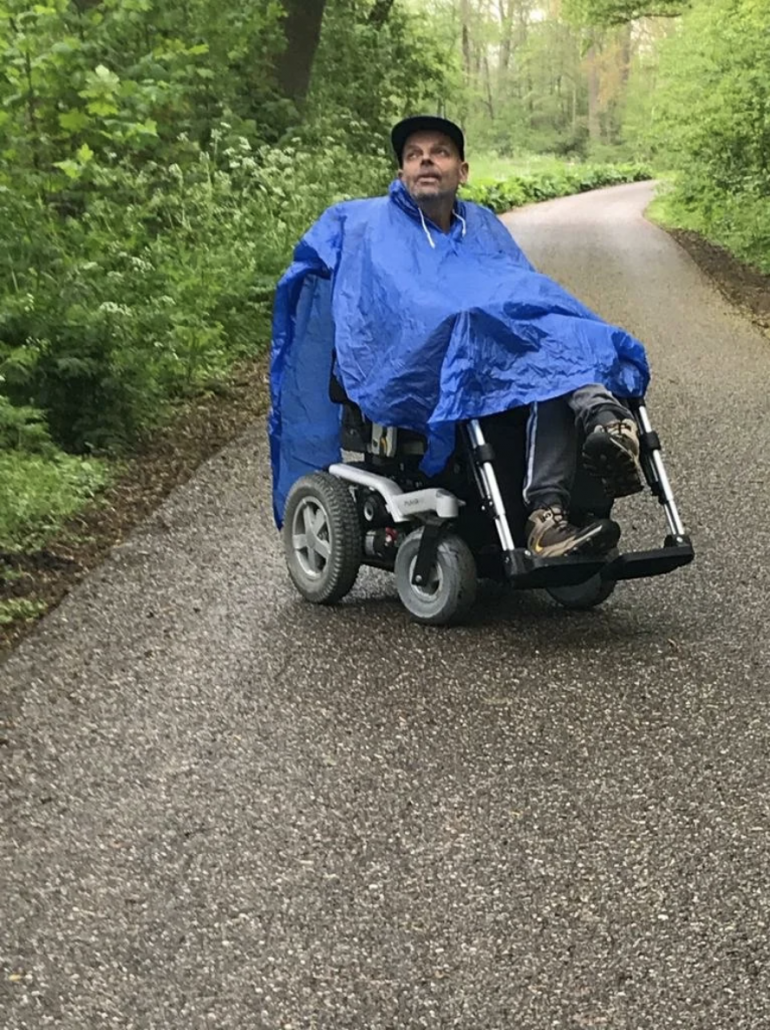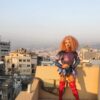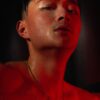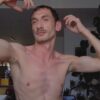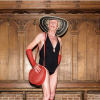But it’s a lot less fun now that Hennie’s world is getting a little bit smaller everyday.
Words by Caspar Pisters, pictures courtesy of Hennie Klein Gunnewiek
“My mom once tied me to a tree with a rope around my waist to prevent me from walking away. I was three years old and already I had an intense desire to explore the world. It is what I ended up doing. I’ve seen all continents with the exception of South America. Most time I spent in Asia. Bali feels like my home, and I lived in Vietnam for a while when the communist government still kept the country closed off for tourists.
Having had those experiences makes it easier to have my world reduced as drastically as it is now, with the limitations that being in a wheelchair brings. I’m increasingly dependent on people to take care of me. If I want to do as little as scratching my nose, I need to ask someone to do it for me. Apparently, it’s an experience that I needed to face.
Eventually all I will be able to do is blink my eyes. Not a very pleasant prospect”
Most of the time I feel content when I look back at my life. The freedom to walk my own path has always been at the center of my choices. I’ve had relationships – my partner died of aids – but living together was not for me. I lasted three weeks.
I never built up a pension. It used to be a worry that lingered in the back of my mind. But with the way my prospects are, I’ll probably not make it to the age where I would be eligible to it, three years from now. It makes me grateful that I decided to not stick with a job that I wasn’t happy in – like I’ve seen some of my friends do – in exchange for a false sense of securing my future.
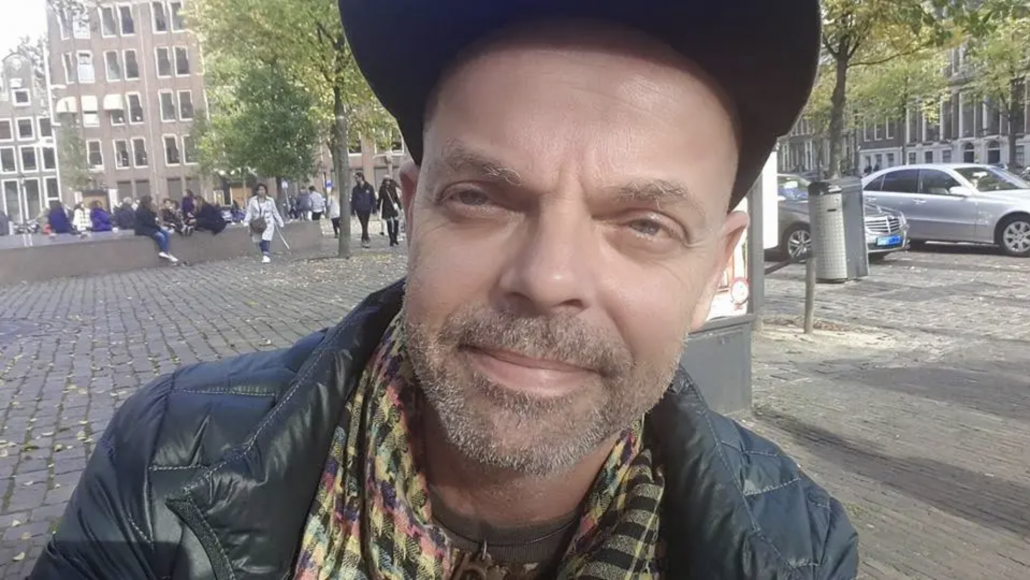
It’s important to pursue freedom, it can’t be taken for granted, it needs our constant attention. I doubt that it would be possible today to organize the kind of parties in Amsterdam that we did in the ’90s at Silodam. Nowadays there are fancy apartments there, overlooking the IJ river. Back then it was squatted property, sometimes used as a venue that could host thousands of people.
Our parties revolved around dancing, fucking, having fun. It was at the peak of the aids crisis, mind you. I remember how one morning guys were outside playing with each other in the early sunlight when a giant cruise ship entered the city. People were on the deck staring at us, us looking at them: welcome to Amsterdam, haha.
We need places where you can be playful and discover yourself”
I did those parties with Stichting GALA, which still organizes the Sex-on-Sunday safe sex parties, for almost 25 years now. We set up the Pink Point info booth at the Westermarkt next to the Homomonument, too. We felt that it was necessary to have a permanent spot to provide information about what the monument signifies, where people can hang out and ask questions.
I owned and ran that kiosk for ten years, I’ve had beautiful conversations there with people from all walks of life.
Also, Amsterdam’s infamous club Church sprouted out of Stichting GALA. The club promotes the same values: sex positivity and the freedom to explore and express yourself.
Once during Amsterdam Pride, in 2004, I set up a darkroom at the Westermarkt. Of course, that was not officially allowed. We did it in a tent that we had darkened on the inside. A butch doorman was guarding the entrance and we played loud music so people couldn’t hear what was going on inside. Well, it wasn’t a huge success in terms of visitors. To us, it was more about making the statement. You have to be a bit provocative sometimes.
(text continues)
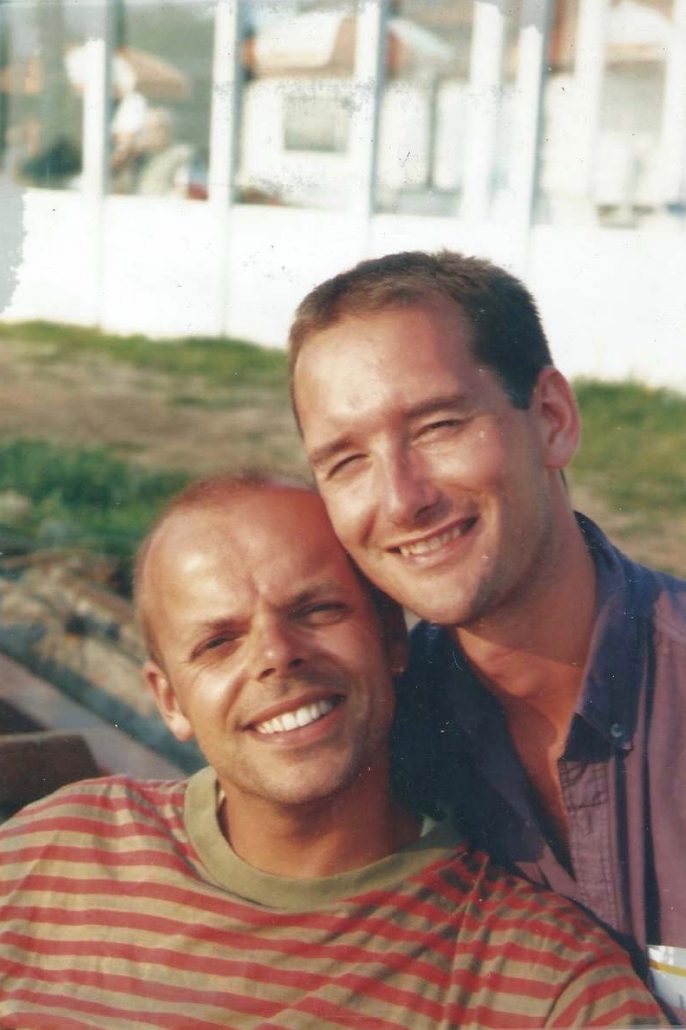
With his (late) partner 1986 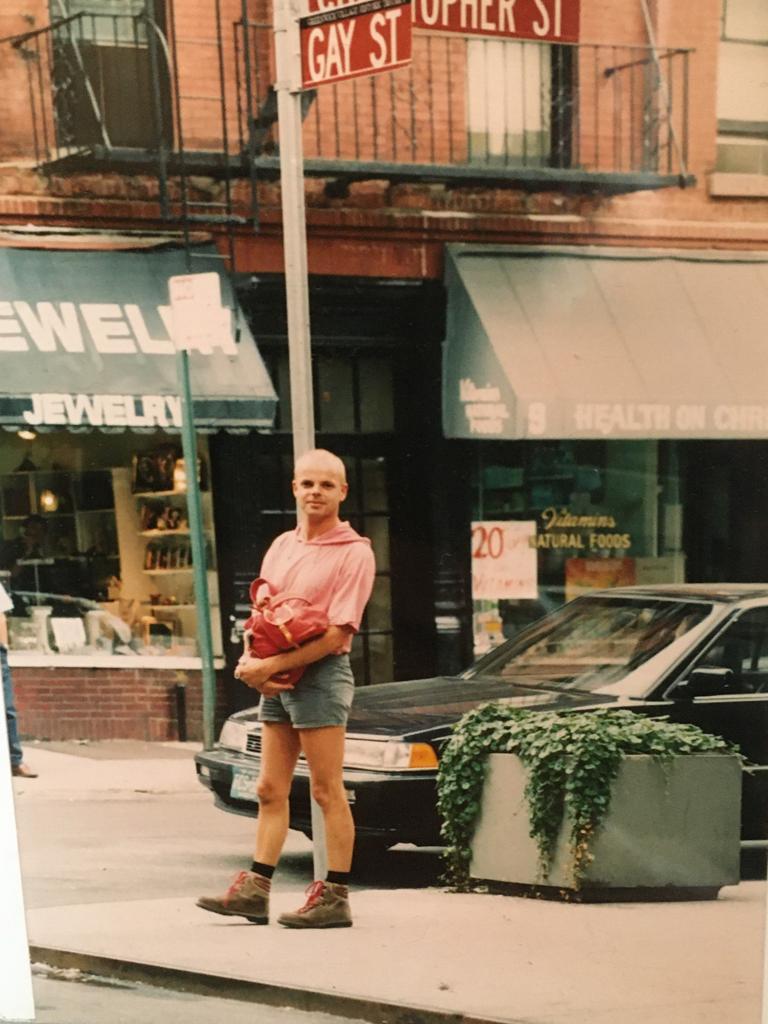
New York 1985 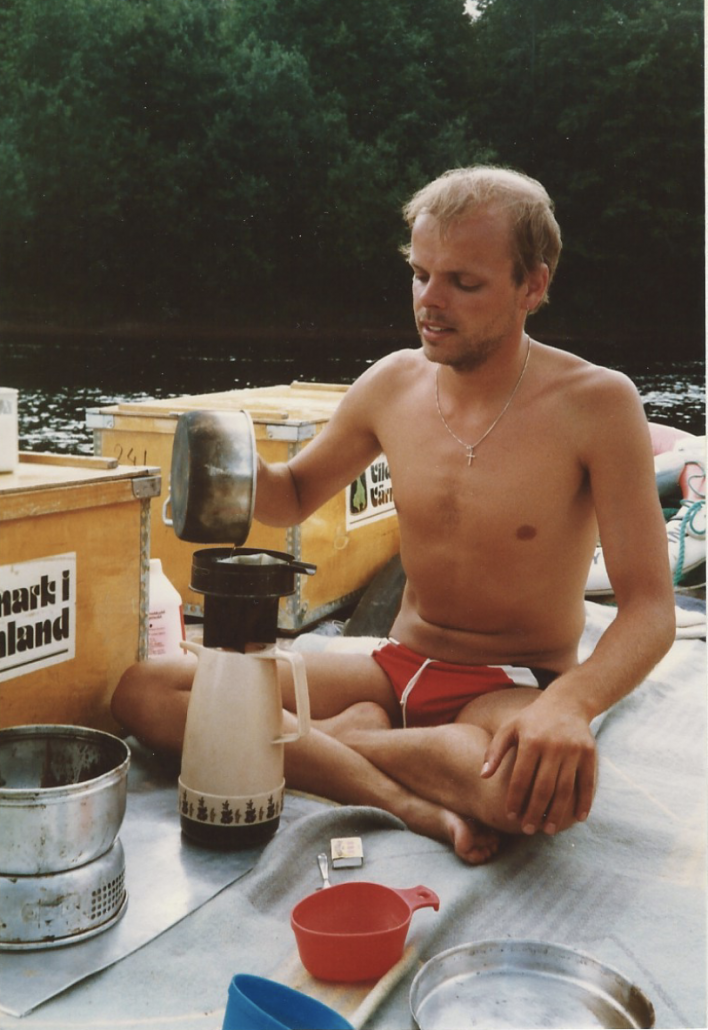
On a self-built raft down the Klarälven river, Sweden 1984 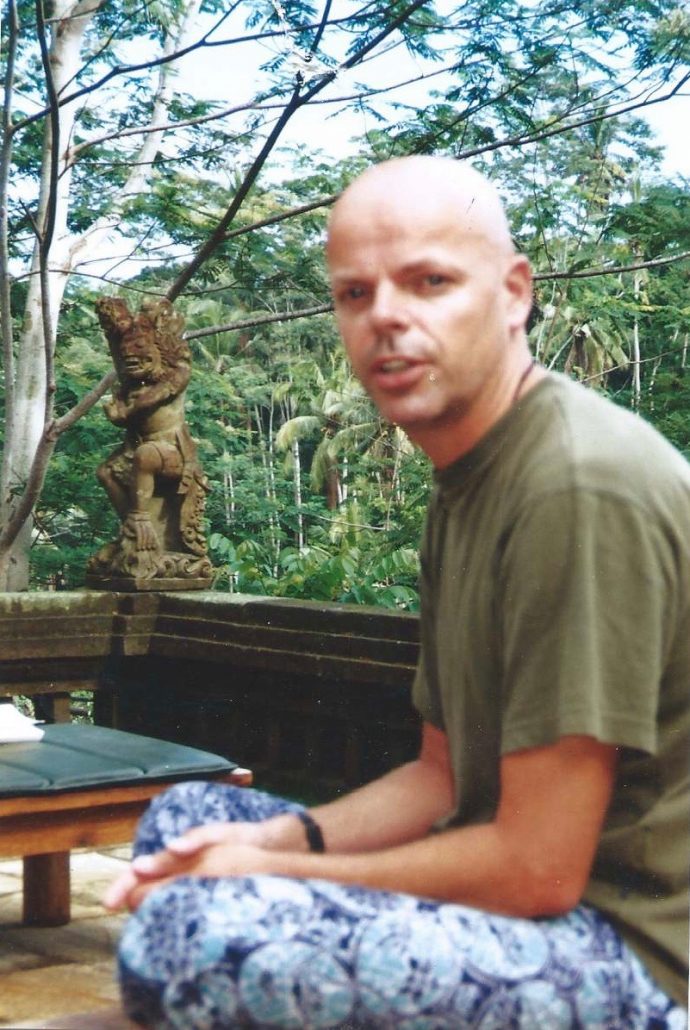
Bali 2004
The best party I ever organized was the Masters & Servants party during Leather Pride. It was in a forge. Slaves ate food from buckets on the floor while the blacksmith was working. Each time he hit the anvil, fire would shoot up. We had a big motorbike set up where people could have sex on. It was a huge success.
I always made sure there would be some elements around like a feather boa or a disco ball. Some of the leather guys complained that it was un-masculine but to us, it was important to signal that anyone was welcome.
In a wheelchair you literally see the world from a different perspective. At crotch altitude”
We never staged big performances. Good music, yes, but no gogo dancers or strippers or whatnot. The goal was to create an environment where the visitors themselves got to be the performer. To stimulate people to experiment and figure out their own nature. Do you feel like a man or a woman, or bigender? Or one thing on Monday, another thing on Wednesday?
Society wants you to be either this or that. A large group of people doesn’t fit into any frame at all. That’s why it is important to have places where you can be playful and discover.
It was sometimes shocking to see how people transformed. I remember a businessman turning into this tremendously vulgar slut in front of our eyes. I think that’s awesome. And hilarious. Just experiment and have a good time. If you can’t express yourself, ultimately it will choke you. You bottle up your feelings, and then one day you might start expressing them the wrong way.
We cannot play the role society demands of us day in and day out. We are told what standards to live by and how we’re supposed to look. And we are expected to not deviate from that. Status is super important and if you look slightly odd, it is seen as a negative thing.
Appearance is not really that important. All but one of the relationships I had were with men I wasn’t particularly attracted to. The nicer people aren’t usually in the front row, they are in the second, that is where the cuties are.
(text continues)
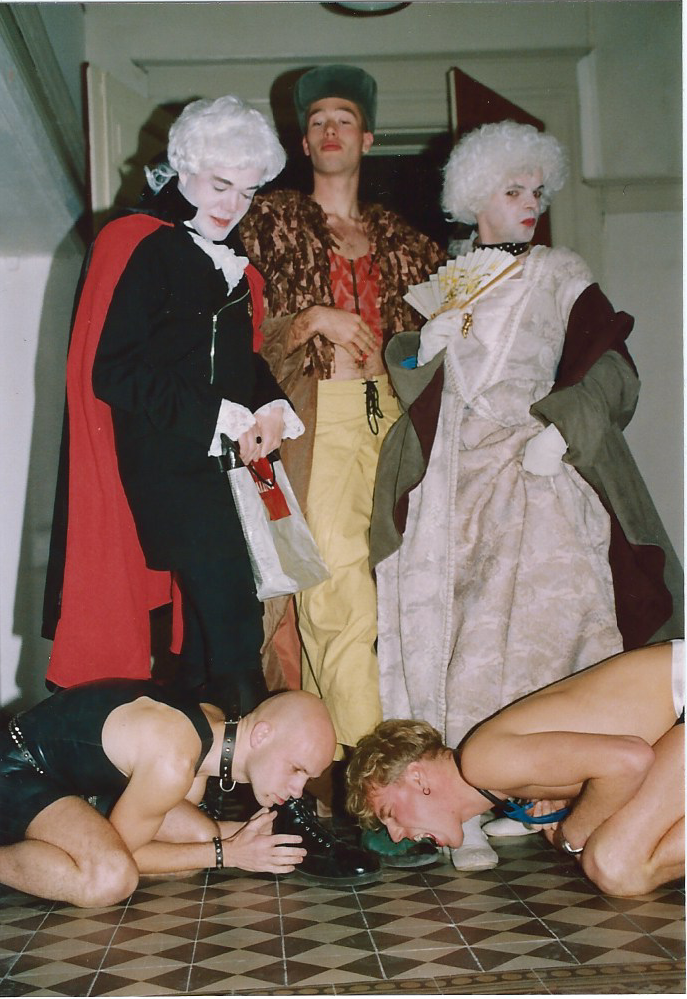
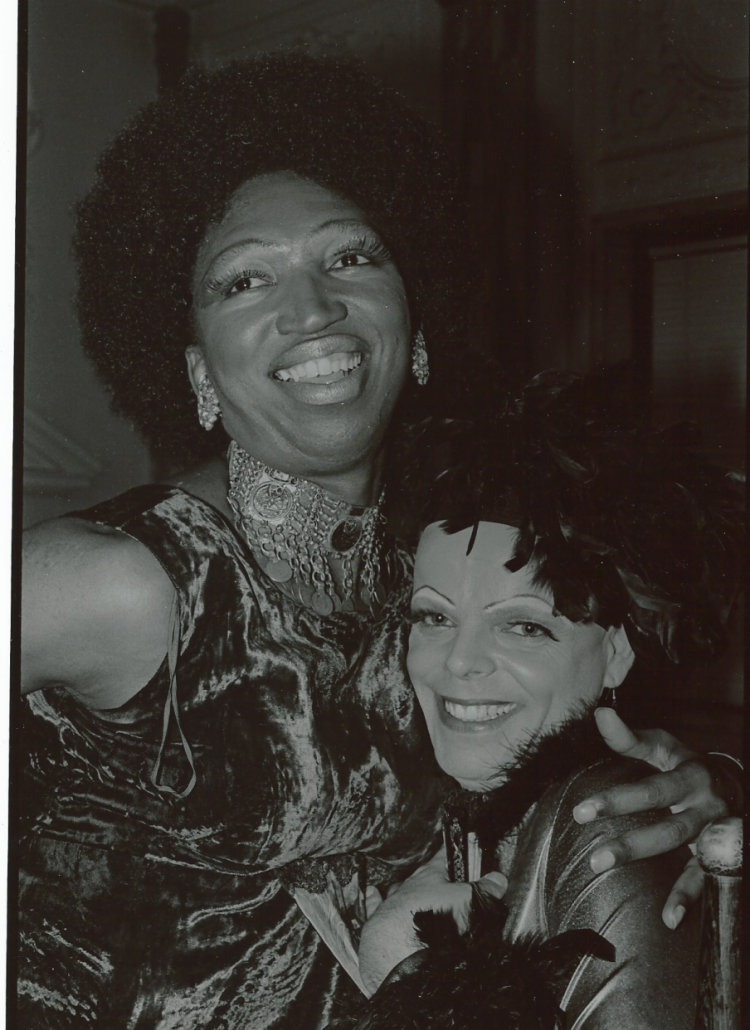
With the late Ms Thandi 
1994 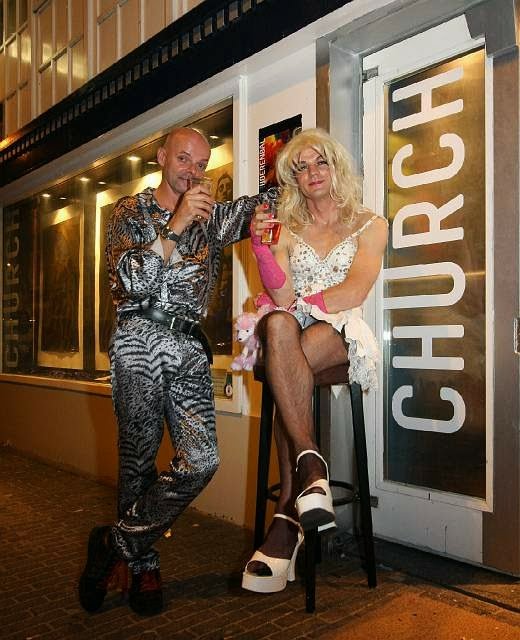
Hooker Ball at club Church
People start to treat you differently when you are in a wheelchair. Recently I needed a new pair of glasses. The salesman addressed my sister, not me – I got ignored. Not consciously, people are friendly. But they tend to feel sorry for me. I joked about it with my buddy Erwin, he’s in a wheelchair too: there is no need to feel sorry for us, not with those wheels we have available to us.
Sometimes my mind gets the better of me when all of a sudden there is a bunch of things I can’t do anymore”
He and I literally see the world from a different perspective. At crotch altitude. Sometimes we park ourselves along the Amstel river. We sit and enjoy the joggers that run past, checking what’s going on in their shorts. I have an electric wheelchair, Erwin doesn’t. Sometimes he holds on to mine and we cruise the shopping street together, our legs nicely stretched out. Or we hold hands, like a couple in love.
Erwin was one of the first people in the Netherlands to be diagnosed with aids. Forty years down the line he is still around but his health is very fragile. It would cause most people to be cautious. Not him. Erwin has another bottle of wine instead. He doesn’t take things too seriously, he’s very down to earth and that’s nice. When I was doing really bad for a while, he was great to talk to. ‘Skip the drama’, he would say, ‘just roll on.’
(text continues)
Usually, I manage. It is with my mind that I have to keep pulling my body forward. Sometimes my mind gets the better of me when all of a sudden there is a bunch of things I can’t do anymore. It requires finding a new balance, every time and again.
Eventually, all I will be able to do is blink my eyes. No talking anymore, no scratching my back, nothing. Not a very pleasant prospect. It took quite some adjusting to almost always have someone around as I have now. But it is necessary and often very pleasant. Every morning someone washes my back, I never had that before.
Why me? Sometimes I ask myself that question but it’s absolutely pointless”
I’m hiv positive myself, too. I remember when I had just received the diagnosis. At a party, I told Wim, these days co-owner of club Church. He lifted me up and spun me around, I could see all the people dancing. ‘Look people’, he shouted: ‘look, I have someone here who’s hiv positive.’ We laughed and we went out to get some greasy food at a snack bar.
I didn’t die from it, obviously, but I came close. Seeing so many people around me die from aids has had a profound impact on me. You’d be surrounded by people at clubs like RoXY or Argos, and two years later half of those people were gone.
The difference between being hiv positive and having ALS is that there were so many more people going through the same thing. Not with ALS. Only one in a hundred thousand people get it and that can make it a lonely experience. Why me? Sometimes I ask myself that question but it’s absolutely pointless. I’m not angry about it, even if I can have days when I feel really, really down.
Right now my lungs are stable, but they function at only thirty percent. I feel that my hands are starting to disfunction and at times my speech seems to start being impaired.
The way I see it my body is a house and my soul is like a fly stuck in that house, trying to get out. Slowly the house is crumbling down. My soul wants to move on. On days when I feel bad, I can feel that urge getting stronger.
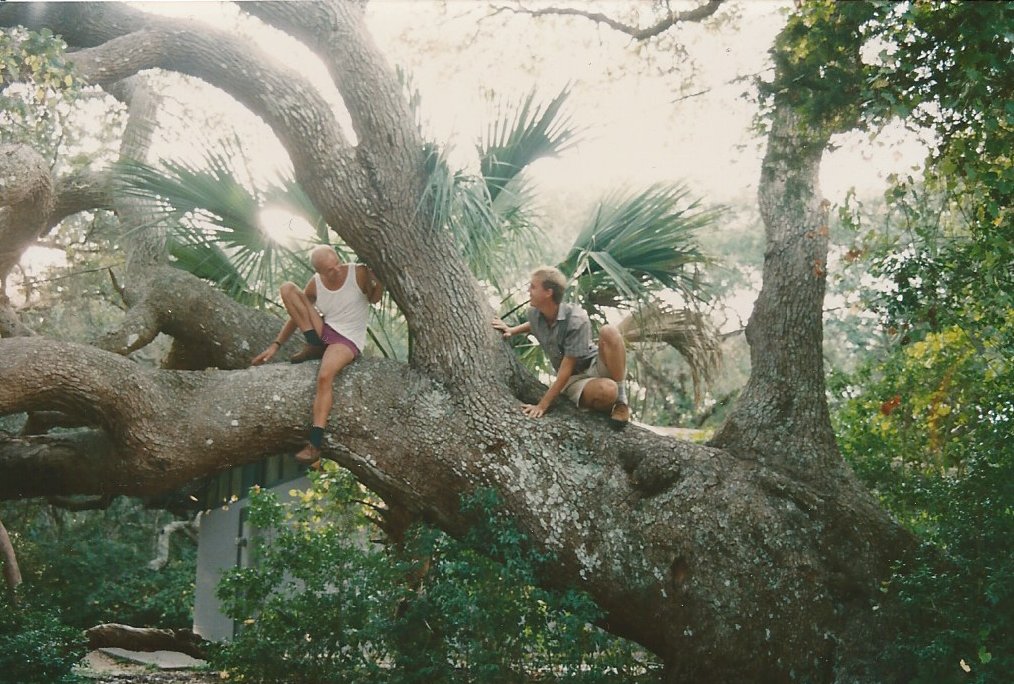
Some days I want to quit, just step out. I’ve lost my freedom. It feels like my body has abandoned me, and my frustration about that can boil up. It helps to cry. I give in to the sadness, knowing that I will feel better again later on. A glass of wine helps, too. And I make plenty of nasty jokes about myself.
I won’t know what it feels like to be locked inside my body until I’m actually in that situation. During the closing ceremony of the Tokyo Paralympics, I saw images of a man with locked-in syndrome. He could only move his eyes, but with help of a computer he set off fireworks over L’Arc de Triomphe in Paris. It was spectacular.
I’m not fighting, I try to accept, every day again”
I’ve made arrangements for euthanasia but it is plan B. I would like to transition naturally. I’ve planned my funeral. Hopefully, I last until spring at least, so we can do it in the outdoor auditorium. I imagine myself lying there, wrapped in cloth, surrounded by people. I will be there and I won’t be there.
I read an obituary recently that stated how the deceased had lost the fight to ALS. I felt so sad for that person. It only makes sense to fight if there is an actual chance that you can win. With ALS there isn’t, there is nothing you can do. I’m not fighting, I try to accept, every day again.
Luckily I don’t have a bucket list of things that I still wanted to get out of life. I did all that when I was able to, there is so much that I’m grateful for. It helps to make me feel calm. Up until now, my life feels satisfying. Being ready to die is what allows me to really live these days. And when it comes, it comes.”
Hennie (63) lives in Amsterdam. He has a beautiful blog in which he writes about his experiences, thoughts and feelings (in Dutch). The next entry will be about freedom.
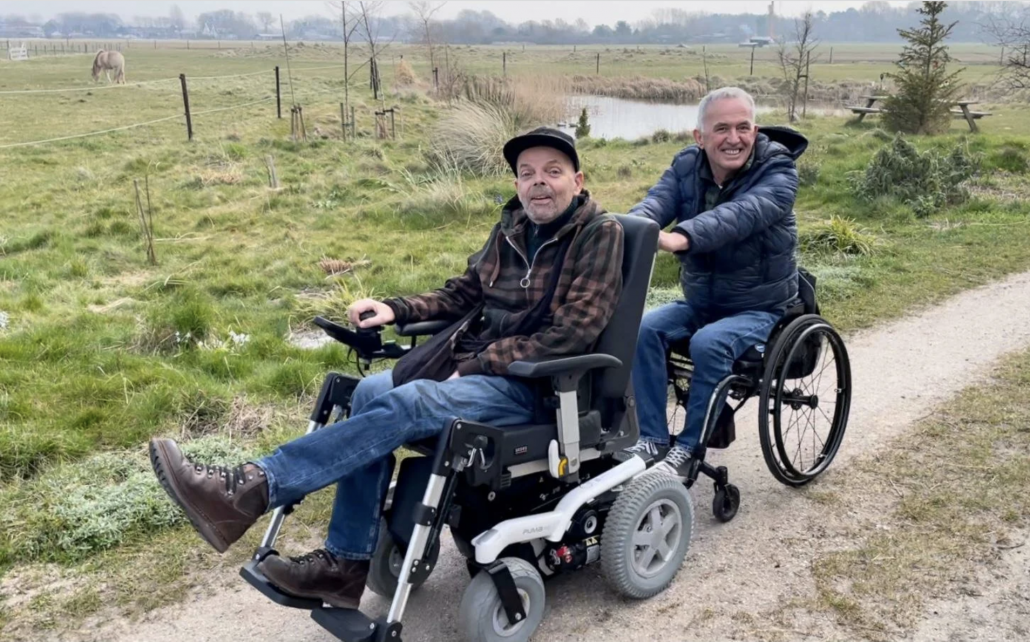
[Hennie passed away December 23, 2021, peacefully]
💫
1MLN. We have a million stories to tell. Feel like sharing? Tell us yours.
///////////////////////////////

